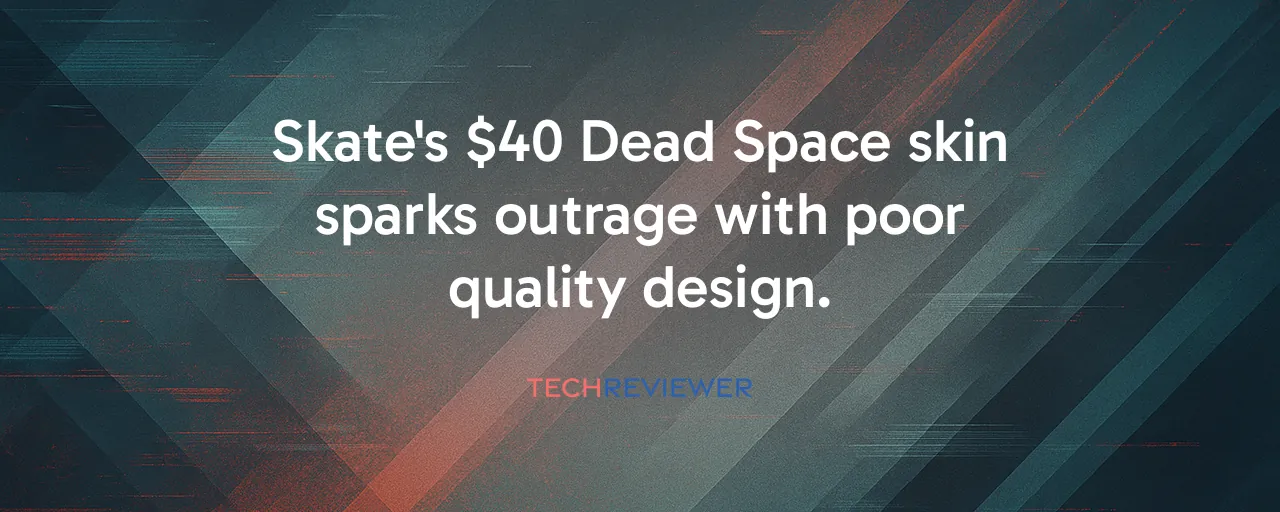A Skin That Misses the Mark
EA's latest Skate title hit a rough patch right out of the gate. The early access launch, meant to refine gameplay with player feedback, instead sparked frustration with a $40 cosmetic bundle featuring Dead Space's Isaac Clarke. Fans expected a polished nod to the iconic character, but what they got looks like a rushed, low-effort design that barely resembles his signature engineering suit. Social media lit up with side-by-side comparisons to Skate 3's free Isaac Clarke skin, which was unlocked with a simple code and looked far more authentic.
The bundle, available through the game's Skate shop, requires players to shell out for San Van Bucks, the premium currency, with the cheapest option totaling just over $40. Alternatively, the $49.99 Founder's Deluxe Pack offers enough currency plus extras, but the price still stings for a single skin and a few accessories. For a game still in development, this move feels like a misstep. Players express frustration that the value proposition doesn't match the cost.
Lessons From Fortnite and Fallout 76
EA isn't the first to face heat over pricey cosmetics. Epic Games' Fortnite has set a standard with skins priced between $10 and $25, often delivering high-quality designs with unique animations that justify the cost. Players see value in Fortnite's consistent quality and transparent pricing, which avoids forcing extra currency purchases. Skate's $40 bundle feels like a stretch when the skin's design falls short of industry norms.
Bethesda's Fallout 76 offers another cautionary tale. In 2019, the company faced backlash over a $76 power armor paint job that players deemed overpriced for its minimal visual impact. The controversy highlighted how gamers tolerate premium pricing only when the quality matches the cost, a balance EA seems to have missed.
The Early Access Monetization Trap
Early access used to mean players and developers working together to shape a game. Now, it's increasingly a platform for monetization, and Skate's launch shows the risks of that shift. Introducing premium-priced cosmetics during a testing phase feels premature, especially when the game's core experience is still being polished. Fans who paid for early access expected their investment to support development, not fund a storefront pushing $40 skins.
The broader gaming industry has leaned hard into live service models, with microtransactions driving revenue for titles like Valorant and Apex Legends. These games keep skin prices around $10 to $25, with bundles offering multiple items for slightly more. Skate's pricing, combined with its lackluster design, risks alienating a community already skeptical of EA's monetization track record.
Skate Culture vs. Corporate Moves
Skateboarding culture thrives on authenticity and rebellion against corporate overreach, making EA's pricing misstep particularly jarring. Fans of the Skate franchise, which prides itself on capturing the gritty, creative spirit of skating, feel let down by a $40 skin that seems more like a cash grab than a tribute to their passion. The Isaac Clarke bundle's poor quality amplifies this disconnect, turning a potential celebration of EA's Dead Space legacy into a symbol of misplaced priorities.
Social media has amplified the outcry, with players sharing memes and comparisons that spread beyond gaming circles. This viral backlash risks shrinking Skate's early access player base, as negative word-of-mouth deters new buyers. For a niche genre like skateboarding games, community goodwill is everything.
Rebuilding Trust With Players
EA and Full Circle, the studio behind Skate, have a chance to turn this around. Listening to player feedback could lead to better-quality cosmetics or fairer pricing tiers, showing fans their voices matter. Transparency about production challenges might soften the blow and rebuild goodwill. Other companies, like Epic Games, have succeeded by adjusting monetization based on community input.
The controversy also highlights a need for industry-wide standards on early access monetization. Clear guidelines on pricing and quality could prevent similar missteps. EA must prioritize its community's passion and deliver cosmetics that live up to the franchise's legacy.
